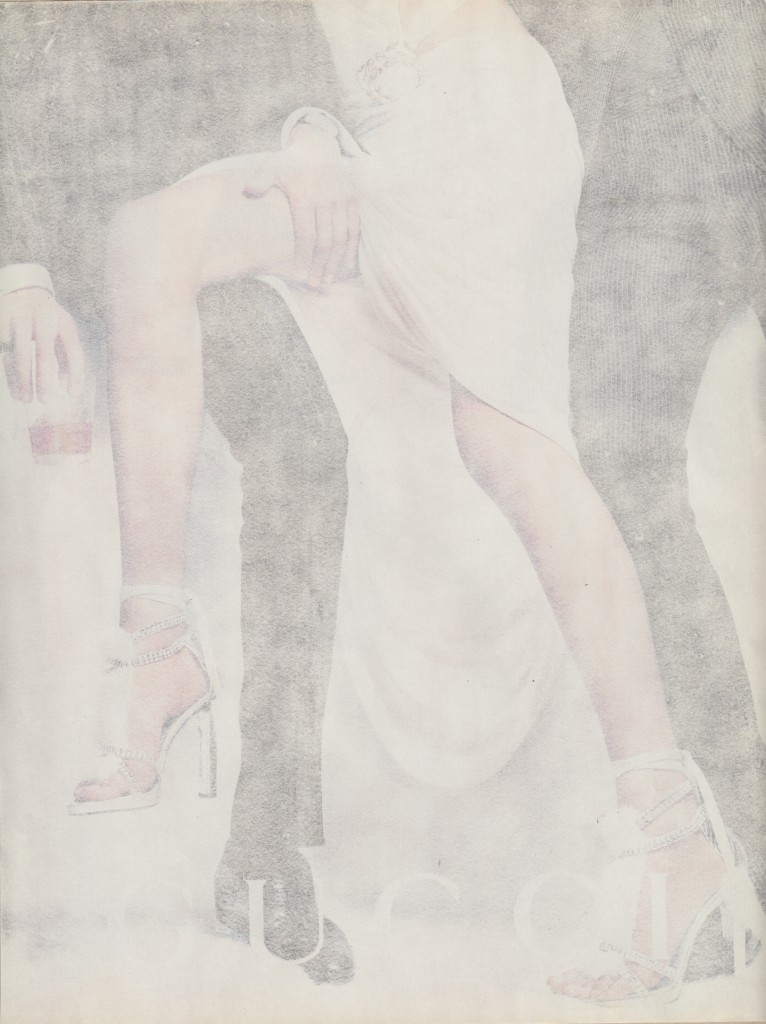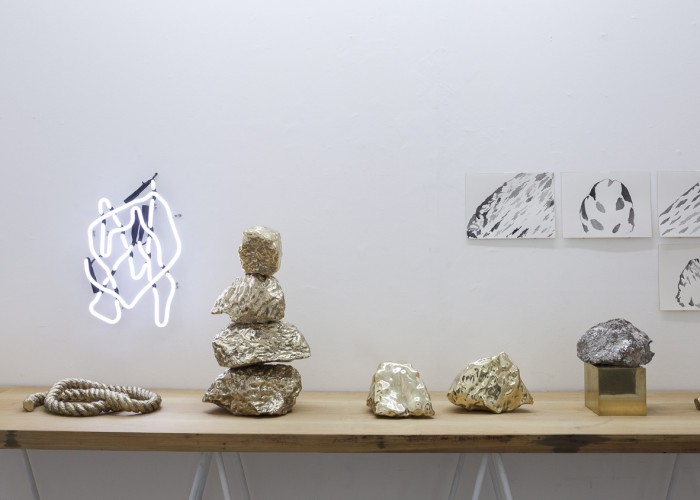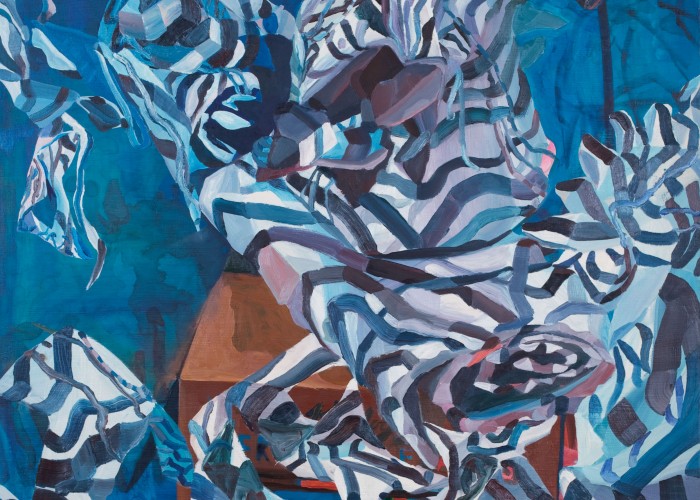Zanzibar: an excerpt
Thibault de Montaigu
translated by Lara Vergnaud
Some people will no doubt feel this work lacks precision and that it’s impossible to write a decent book about a criminal investigation while remaining comfortably settled at home sipping a Diet Coke as you watch rain fall outside the window. It so happens that I’ve always worked like this, preferring to take a back seat for the benefit of my readers. I find the telephone more than sufficient and only venture out of my house to interview the main protagonists of my stories. Except, in this specific case, there aren’t any. Klein and Vasconcelos have been dead for a long time and I don’t have any other choice but to rely on the copious documentation about them that’s been provided me. Someone will object that I didn’t gather this documentation and that I can’t consider it to be absolutely reliable. I will simply respond that I am not a journalist and that my sole concern is to fulfill an assignment, given by my editor. The text in itself doesn’t belong to me.
Certain facts, on the other hand, remain indisputable: Klein and Vasconcelos began their careers as fake reporters just after their eventful departure from the Grand Hotel Europe. A surprising career change to say the least, but one that would prove to be extremely profitable judging by the sudden rise in their standards of living. The two men very quickly embarked on one trip after the other around the world while the balances in their bank accounts remained inexplicably stable: +89.07 euros for Klein and -11,850.66 euros for Vasconcelos before they were definitively closed by the appropriate authorities.
Their last names alone sufficed to get them invited anywhere. An email or a phone call and the matter was settled. Nobody was thinking about asking questions yet. Little wonder: Klein and Vasconcelos passed for good guys in the profession. Eccentric perhaps, wild without a doubt, but good guys that no one could have ever imagined would one day become a sort of failed crook or third rate gangster whose photo appears on the afternoon I-Télé broadcast between a piece on Palestine and another on the new Tour de France route.
In the beginning, the two accomplices settled for latching onto group press junkets: the tourism office in Saint Lucia, fashion week in Tunis, Les Voiles de Saint Barth, the coopérative du jambon de Parme, the La Mamounia Literary Award, the Baros hotel in the Maldives, the Fiat 500 Gucci in Florence… It wasn’t the invitations that were lacking. They received new ones every day. The sole requirement: give the name of the magazine they were meant to represent. Klein and Vasconcelos’ only problem was choosing. They could claim to be affiliated with this or that newspaper with which they were used to collaborating, be creative by alluding to a possible international publication, even invent a magazine that nobody knew but wouldn’t dare question for fear of being taken for an idiot. Worse: certain press agents would congratulate themselves on thus extending their media coverage while others, paid by the page, sensed the possibility of making more money, counting on a lengthy report that the leading magazines, which never had any room, couldn’t guarantee them.
This was how Klein and Vasconcelos, in the following months, actively contributed to publications as varied as Paris Match, Elle, L’Optimum, Le Figaro Madame, but also utterly unknown magazines like Distant Horizons, the Professional Tourist, or even Sea Sex and Sun Magazine without leaving a single trace to be found today. Some people like Zivonjic spoke in this regard of “authors without works” or rather “works pending authors,” asserting even that Klein and Vasconcelos’ artistic corpus, composed primarily of promised reports, imagined articles and photographs to be taken, is one of the most important of the 21st century. As for Alain Bernard, he violently protested against this opinion during a radio interview: That’s a perfectly ridiculous idea! Zivonjic is only parroting that old hoax invented by conceptual artists according to which the intention makes the work. But deep down that means nothing. It’s an excuse for the lazy and the incompetent who mistake their dreams for reality. The truth is that young people today don’t want to do anything anymore. They’re soft! Good-for-nothings!
Unfortunately Klein and Vasconcelos were never able to give their opinion on the subject since at the same instant one of them could be found in an encrusted porcelain funeral urn on the coffee table in his mother’s living room and the other was lying six feet under in a grave in a Christian cemetery in Zanzibar with as his only company red-crested monkeys that came from the nearby forest to nibble on flowers placed against crosses and to fornicate on the tombs. Were they aware of the esthetic impact of their acts? Was their aim ever to launch an artistic movement or carry out a kind of long-term performance? So many questions that we will never be able to answer.
Klein and Vasconcelos soon stopped gatecrashing these kinds of trips, preferring to choose their destinations and organize their own itineraries by talking to the press offices beforehand. Even if this work required more effort in order to convince their audiences – airline companies, hotels, tour operators, tourism offices – they undertook it successfully, aided by their notoriety, and very quickly begin to roam the planet as a team without having to put up with the endless press agents who coddled them like nannies or the other journalists, for the most part freeloaders capable of discussing their union problems or latest stomach bug on an atoll lost in the middle of the Celebes sea.
Today we know that the decision came from Vasconcelos, whose asocial character was ill-adapted to group trips. If Klein, by nature rather curious and likeable, sometimes made friends with the other participants—as was the case with the woman named Anne S. in Venice—Vasconcelos quite simply ignored them. He would avoid sitting next to them on the bus and pointedly stop talking during meals, hidden behind his Ray Ban Aviators, which he liked to believe made him look like Pablo Escobar or any other sinister Latino gangster whom the rank and file were afraid to address. Sadly there was always somebody asking him his opinion or slipping in a remark in that exasperatingly friendly tone obligatory among groups of coworkers. He would then respond with a joke no one understood or launch into a horrific argument in favor of Franco’s legacy or the reduction of the age of sexual consent to twelve years old, which scandalized those listening and provided him immunity against any future attempts at conversation. Ditto for the excursions. Vasconcelos would stay on the sidelines preferring the silence of a book or a landscape to the chorus of historical-touristy redundancies coming from his colleagues. At the end of the trip, at baggage claim, he was the only one never asked for his cell phone number.
Is that the reason people have such a hard time talking about him, when asked? “Solitary,” “arrogant,” “troubling” are the words that appear the most often in the testimonies at my disposal. “Original,” “mysterious,” “seductive” are also used, generally by young women. Here and there some men might describe him as “crazy,” a “crackpot” or a “genuine asshole” but they remain isolated cases. Cases that would disappear as soon as Klein and Vasconcelos began to operate exclusively as a duo, fashioning their own made to measure trips.
This allergy to others is one of the most distinguishing traits of Vasconcelos’ personality. He didn’t limit himself to showing his animosity, like a mere misanthrope, but preferred, and by far, to remove himself in spirit, that’s to say convince himself that he wasn’t there, with them, but elsewhere, en route to his next destination or lost in the twists and turns of his future masterpiece, who knows? The main thing was to negate his presence. Suppress his being from the world. He didn’t simply give the impression of being absent but, after a while, of disappearing physically, creating a kind of black hole in the mental landscape of those nearest him. So they eventually forgot him despite the paradoxical attraction still exerted by this invisible power to whom they attached, in the way of a legend, a halo of mystery and terror.
The few who were able to penetrate his private life, like Klein or Alban Verhaeghe, succumbed to his charms, experiencing even a besotted fascination with him. But what was so unique about him? Was he really a misunderstood genius as some said after his death? Or was his silent arrogance just a way to evade the vacuity of his existence? An artifice to hide his fear of inhabiting his own life and risk being like everybody else, crippled by vanity and unfounded desires?
Alban Verhaeghe, in his documentary Looking for Vasconcelos, tackles this dark side of his subject. One of the scenes, which I re-watched last night, boils it down perfectly. In it, Verhaeghe describes how Vasconcelos had the habit, when he was a student at the Center for Journalism Studies, of staying alone in the classroom during breaks while his peers spread out noisily through the hallways or around the coffee distributor. In this short sequence, you see the camera advance down a deserted corridor. As background noise, student voices and laughter that seem to come from the hereafter. They gradually dwindle as the camera approaches the classroom then go silent at the exact moment that the director pushes open the door and discovers the room’s interior: white board covered with notes, a carpet of paper scattered across the conference table, in the back chairs piled up like Russian dolls and a silhouette filmed from behind that one guesses belongs to Vasconcelos. Then, amidst the silence, Verhaeghe’s voice interjects again, resuming the thread of his narration: “It’s coming back to me, that November afternoon when I went back to the classroom by chance and surprised Vasconcelos, alone as was his wont, lost in his thoughts. What was he dreaming about when he shut himself up in there? Was he thinking about the books he would have liked to write? Was he looking back at scenes from his past? Places? Landscapes? Other places or other rooms where, as a child, he liked to daydream, far from the tumult of the world? But on that day Vasconcelos wasn’t plunged in his reveries as I’d imagined. No. His attention was fixated on a sheet of ruled paper whose content he was furiously copying. I quickly recognized the handwriting as belonging to D., one of the best students in our class, whose style and inventiveness were praised by the writing teacher, Hedi Kaddour. What was Vasconcelos doing with it? Did he want to steal D.’s text? Draw inspiration for his own book? And how to explain the fact that he was bent over the paper whereas he openly despised D. and systematically attacked him during Hedi Kaddour’s class? I never knew. I bumped into a chair and Vasconcelos turned around, red with emotion, as if I had surprised him in the middle of masturbating or doing something equally repugnant. But he recovered his composure very quickly and, addressing me as if I was a servant, asked me what I was doing there. And now that I’m back here, years later, I know that his secret has vanished forever. I know that I will never see Vasconcelos again. Try as I might to imagine him, bent over that sheet of paper, blood coloring his face while the hallways echo with whispers of our conversations, try as I might to remember him shaking in his chair like a naive and frightened child, fearful of being discovered, I can’t do it. The illusion is gone. As if Vasconcelos had died a second time.”
To me this scene seems to contain one of the keys to Vasconcelos’ character. As if within him existed a public self – derisive, haughty, self-assured – and another one, private, devoured by anxiety over being recognized and going down in history. Dissatisfied with himself, he felt obligated to rewrite the world and claim the lead role. That of a man whom no one can reach because he’s superior to everyone else. But this outward superiority wasn’t meant to resist the onslaught of reality for very long and Vasconcelos had preferred to invent a fable rather than give up his infantile enjoyment of narcissistic pleasures. It’s in this way that he invented a universe compatible with his desires rather than bending them to the reality of the world.
But what about Klein? Did he suffer from the same problem or did he follow Vasconcelos out of weakness? If Klein was able to be influenced by his partner, to the point that the former’s mother accused the latter of having “bewitched” her son, taking advantage of his “kindness” and his “fragility” to “drag him into this mess,” as she stated during an interview with the Daily News of Zanzibar, Klein was far from a puppet with whom Vasconcelos amused himself by pulling the strings. Let’s remember that he was nearly forty years old at the time of the events, and couldn’t be unaware of what he was involved in. The zeal he applied to charming press agents and the enthusiasm he showed once on site, cozying up to the hotel staff or showing an interest in the country’s history, proved that he was enjoying it even. As for Vasconcelos, if he cut an impressive figure thanks to his charisma, he didn’t have the status of a guru or a mafia boss either, despite the sartorial efforts he made to appear so. What’s most likely is that they both got swept up in the game without realizing it and when their faces appeared for the first time on the afternoon I-Télé broadcast, it was already too late to turn back.
* *
* *
Image: Walter Andrade, from the series “The Ruin of Others” (magazines erased by hand).
[ + bar ]
Three Snapshots on the Way Down
Edgardo Cozarinsky translated by the author
1. “Il vecchio non trova pace”
What’s that you’re saying, I am about to snap at the barman with my coldest voice... Read More »
Nikkō’s a Real Trip
Matías Ariel Chiappe Ippolito translated by Andrea Rosenberg
日々旅にして旅を栖とす。 (松尾芭蕉)
“Every day is a journey, and the journey itself is home.” –Matsuo Bashō, tr. Sam... Read More »
On Luna Paiva’s “Memorias Herméticas”
Andrew Berardini
Even if the meaning of ancient totems disappeared, their meaningfulness has not. A human hand altering nature with purpose, these ancient stacks of stones mark a... Read More »
Your Lying Cheater’s Heart
Carmen María Machado
Junot Díaz’s This is How You Lose Her as a Confessional Text
The confessional text—either an author baring his own soul, or a... Read More »








 sending...
sending...